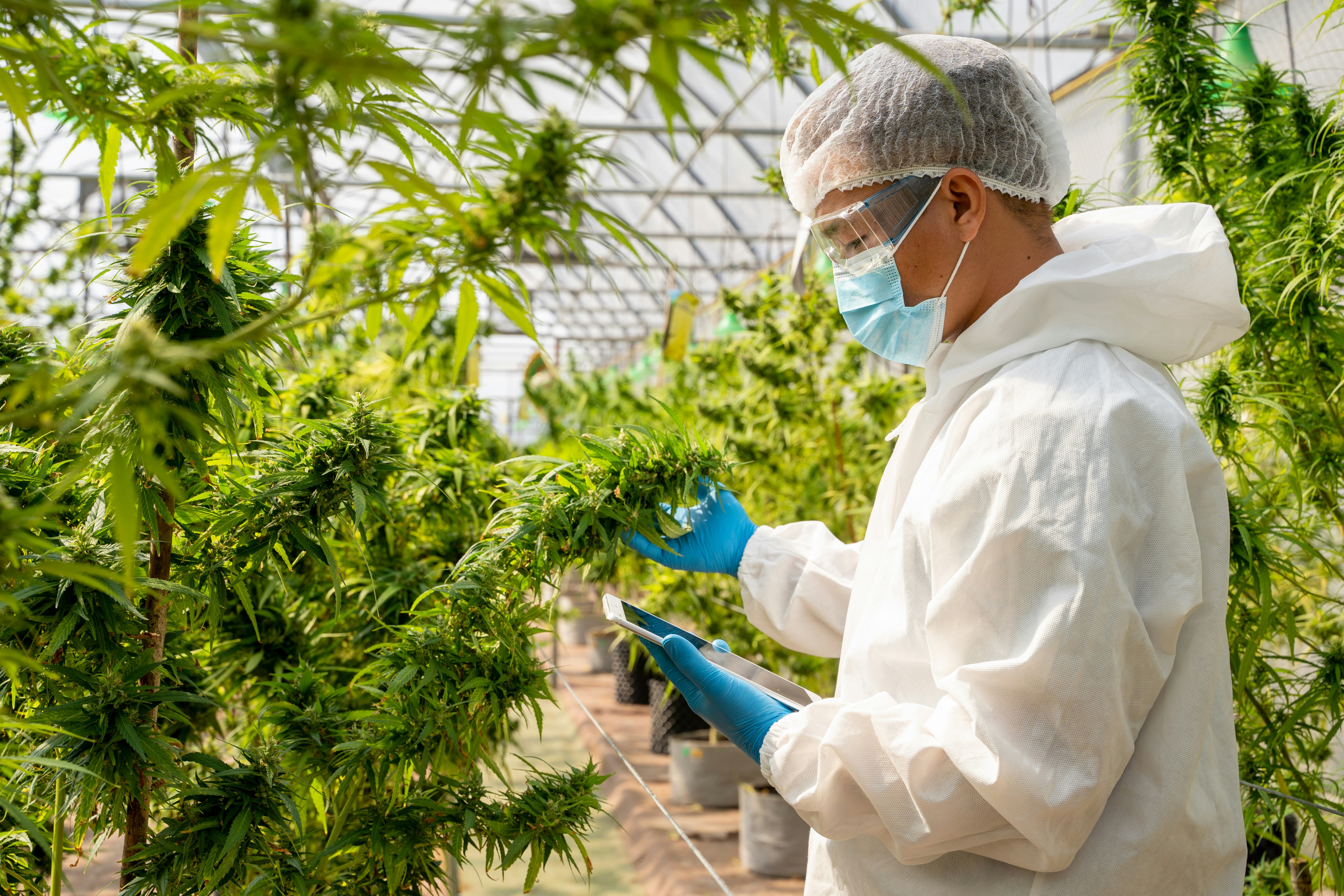
It sounds like the stuff of pipe dreams, but for the past two decades, a handful of scientists around the world have been investigating the tumor-fighting properties of cannabis or, more specifically, the potential tumor-fighting properties of different cannabinoids — distinct compounds found in the cannabis plant.
Legal restrictions in the United States and elsewhere have historically stimied cannabis research, though those roadblocks have started to crack in recent decades. Israel, which has a much more open and robust history of medical cannabis research, has also seen advancements in this area. All of this, including research done in a few other countries, points to a promising, if complex, future for cannabinoids and cancer treatments.
Babak Baban, an immunologist at the University of Augusta’s Dental College of Georgia, has spent years studying the potential therapeutic applications of the cannabinoid CBD — also called cannabidiol.
“As an immunologist, I am naturally interested in any compound that can impact the immune system, health, and diseases,” Baban tells Inverse, noting that cannabis has been used medicinally for thousands of years. “However, the mechanisms responsible for the effects are not known yet.” Additionally, he says, there are many diseases for which CBD could be an effective treatment, so further study of the compound is warranted.
A brief history of medical cannabis
As early as 2737 B.C., Emperor Shen Neng of China was prescribing marijuana tea to treat gout, rheumatism, and malaria. From there, the plant was used throughout Asia and spread to the middle east and India.
By the late 18th century, medical professionals were reporting the therapeutic properties of CBD in American medical journals, though the actual term cannabidiol wouldn’t be established until the 20th century. Hemp was a popular crop, and while hemp contains meager amounts of THC, it’s relatively rich in CBD. Doctors recommended using hemp seeds and roots to treat inflamed skin. This may have been tapping into the anti-inflammatory properties of CBD. According to a historical review published in the Journal of Clinical Neuroscience, a doctor with the British East India Company, William O’Shaughnessy, popularized cannabis as a treatment for rheumatism pain as well as a tonic against nausea caused by rabies, tetanus, and cholera.

In 1909, the United States Government created the Food and Drug Administration and, with it, began more heavily scrutinizing medications, and by 1937, 23 states had outlawed the drug.
Fast forward to 1996, and California legalized the medical use of cannabis, despite its federal illegality. Other states followed suit, opening up research possibilities that had been closed for decades.
How the endocannabinoid system works in humans
Researchers are still trying to precisely determine the mechanism by which different cannabinoids could inhibit tumor growth or otherwise aid cancer treatments, but the endocannabinoid system likely plays a role. The endocannabinoid system is a network of receptors all mammals have that bind with endocannabinoids — cannabinoid-like molecules that are naturally produced by the body — or cannabinoids that come from cannabis. The ECS helps regulate many bodily processes, including inflammatory responses and pain control.
“Cannabinoids such as CBD modulate critical cellular pathways through the endocannabinoid system, a widespread biological system that influences each and every cell in the body. That is why these molecules can influence different aspects of cancer,” Meiri says. “The cannabis plant possesses more than 160 active cannabinoids, of which CBD is only one... In one of our studies investigating leukemia, CBD is one component of a combination of three molecules working together to exert antitumor effects.”
Can CBD help treat cancer?
A number of studies over the past several years suggest CBD may inhibit cancer growth. For example, Baban and his colleagues tested the effects of CBD in mice with glioblastoma, an advanced form of glioma brain cancer, and mice with melanoma. In both cases, the researchers found that the tumors were 40 to 60 percent reduced after CBD treatments compared to controls. In addition to reducing tumor progression, Baban says the CBD appeared to “normalize other pathologic conditions,” like improving immune responses. For example, some cancers protect themselves from being attacked by causing the immune system to stimulate something called “immune checkpoint targets.”

Under normal circumstances, these proteins stop the immune system from overreacting to a foreign invader; the overreaction could damage healthy cells and tissue. But, they could also stop the immune system from attacking cancer cells, too. Baban’s work suggests that CBD might block certain immune checkpoints from being stimulated by the cancer cells, thus enabling the immune system to better attack the cancer cells.
CBD isn’t the only cannabinoid to show cancer-fighting promise. A 2014 study published in the journal Molecular Cancer Therapy found that using CBD and THC together against glioma cell lines in vitro, the combination allowed lower concentrations of both cannabinoids to be used to effectively kill glioma cell lines than either cannabinoid alone.
The researchers tested the same combination in mice with high-grade glioma, they found that combining the two cannabinoids with irradiation reduced the mice’s tumors: On day 21, the mice who received a THC and CBD combination along with radiation saw a significantly greater reduction in tumor size than either cannabinoid alone and even greater reduction than the control group, in which only radiation was administered.
Dedi Meiri’s lab at Technion Israel Institute of Technology studies cancer biology and the therapeutic potential of naturally-occurring metabolites from various species of cannabis and other plant sources. In particular, they’ve found certain combinations of cannabinoids may have cancer-fighting properties in some leukemia cancers, estrogen receptor-positive breast cancer, and immunogenic cancers — cancers that can trigger an immune response.
Their research indicates that rather than cannabis being any kind of a “cure” for cancer, “different components of the plant can affect certain cancers,” Meiri tells Inverse.
His lab is researching personalized medicine for cancer, saying compounds taken from different chemovar or “strains” might be more beneficial for one patient compared to another. Right now, they are currently trying to determine which molecules in various cannabis strains would be most beneficial for different patients.
Recent cancer research and treatment development has focused on immunotherapy, in which the patient’s immune system is stimulated to fight their specific type of cancer. Meiri says the work his lab is doing could complement such efforts.
“This way, cannabis can help fight cancer not only by directly affecting cancer cells but also by modifying the immune response and the ecosystem of the tumor,” he says. “Combining conventional treatment with cannabis is sometimes beneficial, and sometimes harmful, all depending on the type of cannabis, on the one hand, and the type of cancer, on the other hand.”
While more research is needed, Meiri says, “there is definitely a high potential for co-treatment.”
It’s worth underscoring that very little of this research has been done in clinical trials involving humans; most studies are performed in vitro or on animals. There’s a long road between our current understanding of cannabinoid therapy for cancer and approved treatments. How quickly or slowly we traverse that road depends on many factors like cannabis’ legal status and funding.







